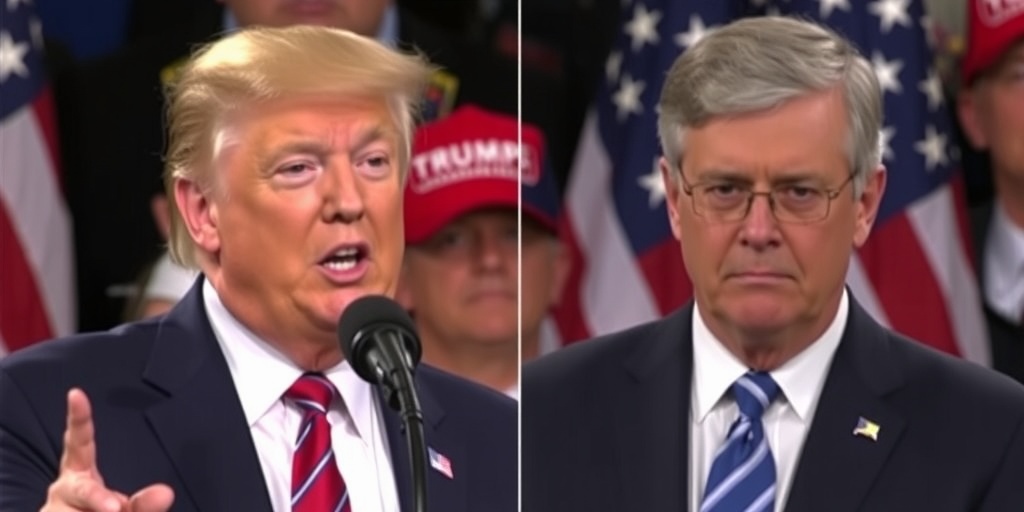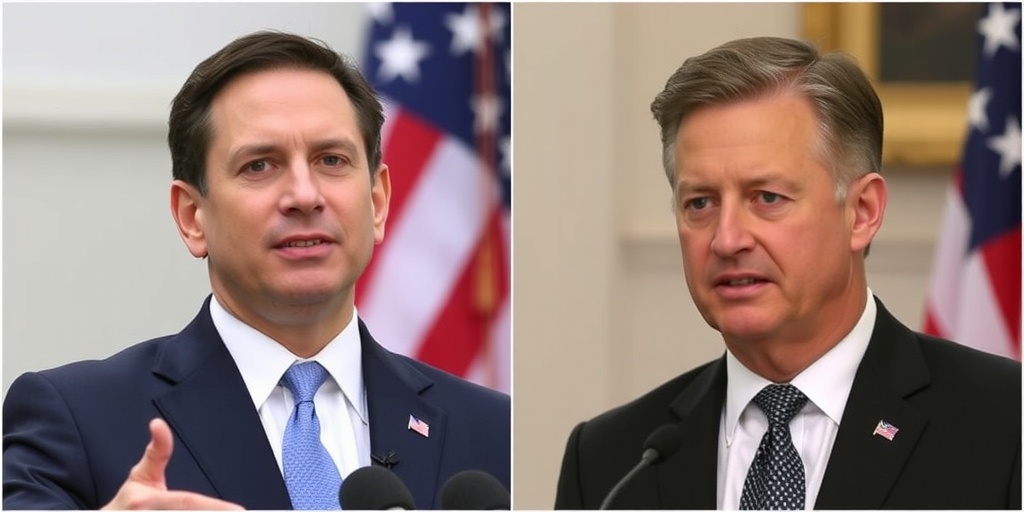Now Reading: Experts or Excess? The Debate on Federal Horticulturists, Biologists, and Engineers
-
01
Experts or Excess? The Debate on Federal Horticulturists, Biologists, and Engineers
Experts or Excess? The Debate on Federal Horticulturists, Biologists, and Engineers

Title: Cuts to Federal Workforce Raise Concerns about Agricultural and Scientific Expertise
In the shadows of government restructuring, the National Plant Germplasm System, a critical U.S. federal collection of seeds, roots, and stems, remains largely unknown to the general public. This repository serves as a “living library,” a sentiment echoed by Dr. Rachel Spaeth, who described it as America’s safeguard against potential famine on a global scale. As a horticulturist overseeing 7,000 trees producing vital stone fruits such as apricots and peaches at a research site in California, Dr. Spaeth played a key role in maintaining the health and genetic diversity of these plants for future breeding programs. However, Dr. Spaeth was unexpectedly fired just two weeks ago, sparking widespread concern about the implications of such actions.
This dismissal comes amid President Trump’s aggressive initiative, along with tech mogul Elon Musk, aimed at reducing what they describe as a “bloated, corrupt federal bureaucracy.” This campaign has targeted a host of scientists and specialists who have contributed significantly to the federal government’s modern infrastructure and the U.S.’s leadership in global research. The administration’s strategy has alarmed even some conservatives, who fear that the indiscriminate nature of these firings could undermine essential government operations.
The ongoing wave of terminations has raised fundamental questions about the extent and nature of the federal workforce. While some argue for scaling back government size, the Trump administration’s actions suggest a more radical approach that many see as a challenge to the long-held efforts to create a civil service staffed by experts across various fields. The administration has already acknowledged mistakes in its approach, reinstating some specialists, particularly those in crucial sectors such as avian health and national nuclear security.
The harsh repercussions of this policy are evident in the growing number of specialists leaving their positions. Departures have included biologists focused on endangered species at the U.S. Fish and Wildlife Service and meteorologists at the National Weather Service. Remarkably, Dr. Spaeth’s situation reflects a wider trend, as wildlife biologists, renewable energy engineers, and food safety microbiologists face similar fates or have left voluntarily.
Rachel Greszler, a senior fellow at the conservative Heritage Foundation and a proponent of Project 2025—a blueprint for federal governmental reforms—commented on the qualifications of those fired, stating, “Highly educated individuals are performing essential functions.” This remark highlights not just the loss of jobs but the potential diminishing of expertise necessary for government operations.
Notably, Dr. Spaeth’s firing occurred shortly after she received an internal commendation for her work. Her value was recognized just days before her termination, which she humorously noted as “hilarious.” As she reflects on her abrupt exit, Dr. Spaeth expressed deep concern for the future of the plant collection she managed. With her dismissal, the almond breeding program in particular faces challenges, especially with recent threats from new diseases such as “red leaf blotch.”
The federal workforce, comprising approximately 2.3 million civilian employees, is noted for its educational background—53% hold college degrees. Many possess specialized scientific knowledge that is difficult to replicate, as emphasized by Max Stier, president of the nonpartisan Partnership for Public Service. “This workforce has developed expertise over years of study and practice,” Stier asserted.
Concerns about the loss of expertise extend beyond individual scientists. Lindsey Nielsen, a microbiologist recently terminated from the FDA, echoed fears about a “huge scientific gap.” She described the abrupt firing process, questioning the rationale behind performance assessments that lacked supporting evidence. Similar sentiments were voiced by Jacob Malcom, an endangered species biologist, who lamented the generational impact of losing such specialists on the conservation efforts that have allowed species like the bald eagle to thrive.
The implications of this purge are severe—not just for the scientists impacted but for the future of U.S. agriculture, food safety, and environmental conservation. The Nebraska Cattlemen’s Association and the Beet Sugar Development Foundation have raised alarms about how such firings will adversely affect research aimed at improving agricultural practices and consumer safety.
Despite many departures, some researchers have managed to return to their positions, thanks to advocacy from their peers and industry stakeholders. However, Dr. Spaeth remains unemployed and is exploring teaching opportunities while grappling with the impact of her absence on critical research efforts.
In the wake of these sweeping changes, the broader discourse concerning the federal government’s role and the urgent need to balance efficiency with expertise continues, underscoring the tension between political aims and the indispensable work of scientists dedicated to public good. As the Trump administration pushes forward, the ramifications of this radical restructuring will likely reverberate within the scientific and agricultural sectors for years to come.
Stay Informed With the Latest & Most Important News
Previous Post
Next Post
-
 01New technology breakthrough has everyone talking right now
01New technology breakthrough has everyone talking right now -
 02Unbelievable life hack everyone needs to try today
02Unbelievable life hack everyone needs to try today -
 03Fascinating discovery found buried deep beneath the ocean
03Fascinating discovery found buried deep beneath the ocean -
 04Man invents genius device that solves everyday problems
04Man invents genius device that solves everyday problems -
 05Shocking discovery that changes what we know forever
05Shocking discovery that changes what we know forever -
 06Internet goes wild over celebrity’s unexpected fashion choice
06Internet goes wild over celebrity’s unexpected fashion choice -
 07Rare animal sighting stuns scientists and wildlife lovers
07Rare animal sighting stuns scientists and wildlife lovers





















